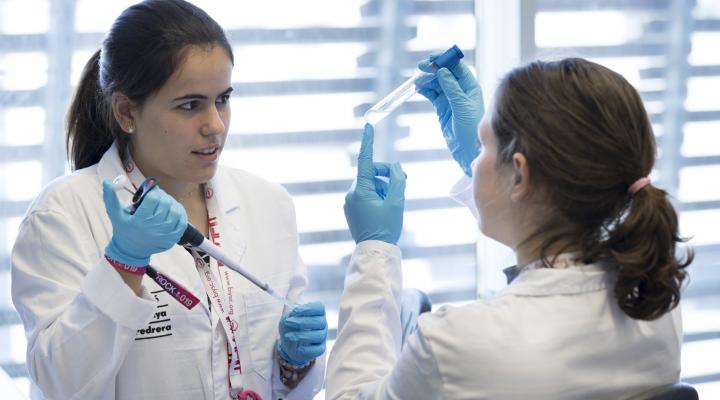
Scientific vocations
We offer extraordinary opportunities for talented young students with a keen interest in science. Immersive experiences in real research: motivating, inspiring and relevant to guide their academic and professional careers.
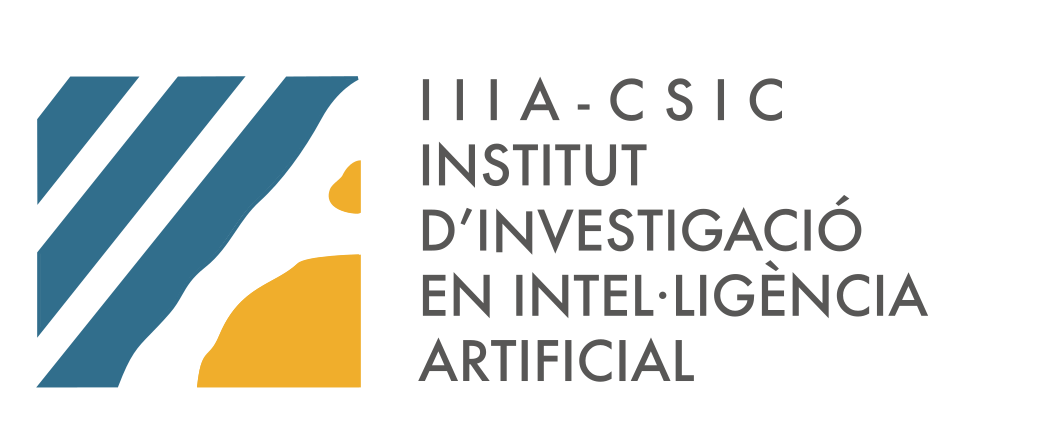

The Artificial Intelligence Research Institute (IIIA) is a research center of the Consell Superior d'Investigacions Científiques (CSIC), located on the Bellaterra Campus of the Universitat Autònoma de Barcelona (UAB) and focused on the field of artificial intelligence (AI), being a center of reference in Spain in this field.


The Barcelona Institute of Science and Technology is a leading institution of multidisciplinary research encompassing seven Catalan research centres of excellence. By fostering collaboration among members of its diverse scientific community, BIST plays a leading role in pushing the frontiers of science while becoming a global reference for training outstanding research talent.
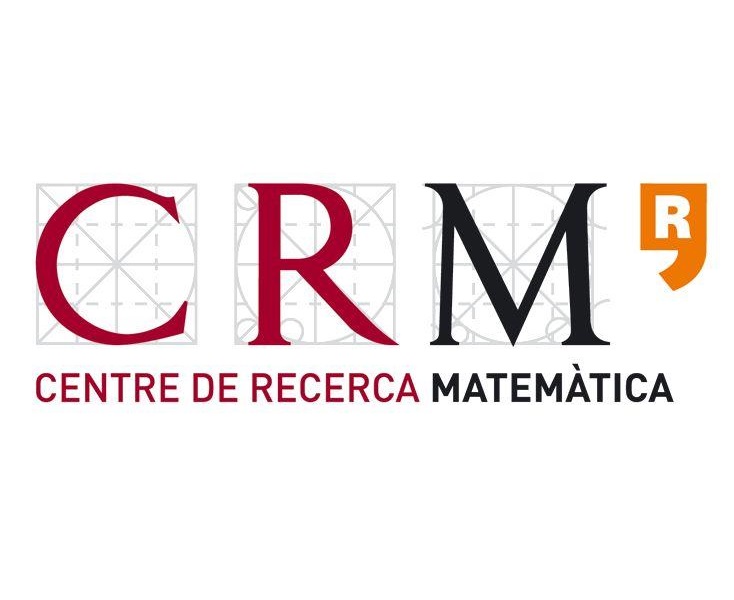

The CRM, established in 1984, has as a mission statement to “improve research and advanced training in Mathematics, in collaboration with Universities and other research institutions in Catalunya”.
This concretises in three aspects:
- Attract recognized mathematicians to the Catalan R+D system, enhance collaborative interdisciplinary research, and promote research training at all levels.
- Support the local community in the international arena, by hosting visiting researchers from all over the world and organizing scientific events of various formats.
- Transfer mathematical knowledge and technology to society.


The Department of Experimental and Health Sciences (DCEXS) of Pompeu Fabra University combines the creation and transfer of knowledge through the seamless integration of research and teaching. Innovation in education and research excellence are the cornerstones of our efforts.
The DCEXS hosts 35 research groups divided into eight distinct programmes spanning a wide range of topics, from molecular biology to public health.
In addition to the research, the DCEXS offers four undergraduate programmes, five master’s degrees and a PhD programme in Biomedicine. The DCEXS is strategically located within Barcelona’s Biomedical Research Park.
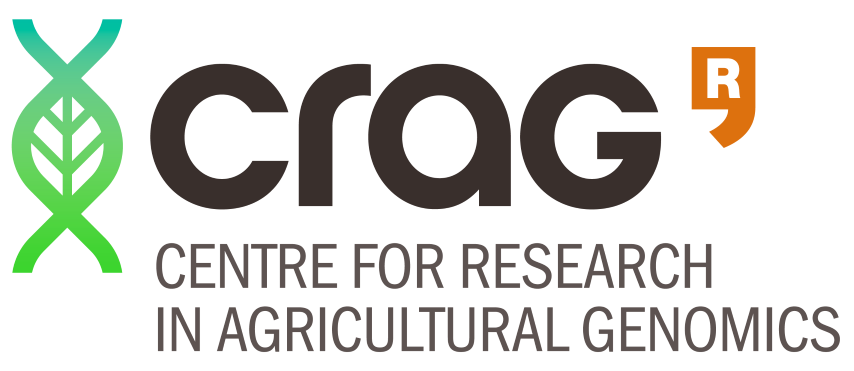

The Center for Research in Agricultural Genomics (CRAG) is an independent organization established as a Consortium of four main research institutions: the Spanish National Research Council (CSIC), Institute of Agrifood Research and Technology (IRTA), Autonomous University of Barcelona (UAB), and University of Barcelona (UB), and receives support from the Government of Catalonia through its General Direction for Research. The centre is a multidisciplinary research centre dedicated to studying genetic factors which determine characters of interests in plants and farm animals. Basic research is conducted under scientific criteria of excellence and research towards the improvement of plants and animals used in the food industries.


The Centre for Cooperative Research in Biomaterials (CIC biomaGUNE) is located in Sant Sebastià, and has been running since December 2006. CIC biomaGUNE is a non-profit research organisation that was founded to promote scientific research and technological innovation at the highest levels in the Basque Country, following the Bio Basque policy, in order to create a new business sector based on biological sciences.


The Music Technology Group (MTG) of the Pompeu Fabra University (UPF) in Barcelona, part of its Department of Information and Communication Technologies, carries out research on topics such as audio signal processing, music information retrieval, musical interfaces, and computational musicology. The MTG wants to contribute to the improvement of the information and communication technologies related to sound and music, carrying out competitive research at the international level and at the same time transferring its results to society. To that goal, the MTG aims at finding a balance between basic and applied research while promoting interdisciplinary approaches that incorporate knowledge and methodologies from both scientific/technological and humanistic/artistic disciplines.


The Center for Excellence in Education nurtures careers of excellence and leadership in science and technology for academically talented high school and college students. CEE is dedicated to encouraging international understanding between and among future leaders of the world
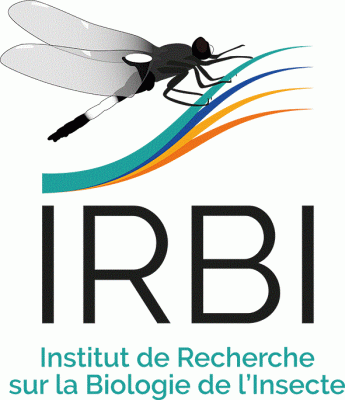

The Institute for Research on Insect Biology (IRBI) is a joint research unit led by the University of Tours and the CNRS that analyses adaptive and evolutionary processes at all levels of the organisation, from the genome to communities. The institute’s research is based on methods and concepts related to ecology, functional morphology, genetics and evolutionary biology. The institute's studies are characterised by the models used, the insects studied and the comprehensive approach to problem solving, thanks to the range of expertise and collaborative networks of the researchers involved.


The Centre for Climate Change (C3), set up in late 2008 at the Campus de les Terres de l'Ebre by the University Rovira i Virgili (Tarragona, Spain), is focused on researching, outreaching and knowledge transferring in the fields of climate reconstruction and analysis. The specific activities include high-quality climate datasets development (comprising data rescue procedures and research on homogenization methods) and climate variability and change assessments (particularly climate change detection) at different spatial (from local to global) and temporal (from sub-daily to annual) scales.


Imperial College London is a world top ten university with an international reputation for excellence in teaching and research.


The UdL combines a long and successful university tradition with a young and dynamic structure, one that is firmly committed to offering high-quality education and research, advanced teaching methods and internationalisation.
The UdL is currently the 4th highest-ranked university in Spain in terms of teaching, while it comes in 5th place in performance and 7th in research according to the U-Ranking 2019.
Awarded as a Campus of International Excellence by the Iberus project, an accolade it shares with the universities of Zaragoza, La Rioja and Navarra, the UdL’s mission is to generate, share and apply knowledge.
Thanks to its link with agricultural production in the local area, the UdL enjoys a leading position in terms of agronomic and forestry studies, in addition to other fields of knowledge. This allows the university to offer training activities aimed at undergraduates, graduates and professionals who wish to acquire, refine or update their training across the five branches of knowledge: arts and humanities, sciences, health sciences, social and legal sciences, engineering and architecture.
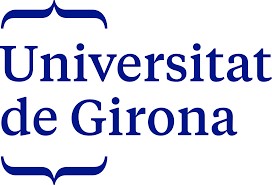

The University of Girona is a public institution that is integrated into the Catalan public university system. It excels in teaching and research and participates in the progress and development of society through the creation, transmission, dissemination and critique of science, technology, humanities, social and health sciences, and the arts. It is an economic and cultural hub in the local area. The university stands for universality and an openness to all the traditions, advances and cultures across the globe.
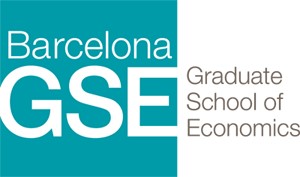

Modern crises and emerging challenges have called established economic models into question. In 2006,
as thought leaders in countries all over the globe were re-examining our understanding of economic science, a group of highly renowned professors and economists envisioned the need for a graduate school that could produce research and trained professionals with the preparation and expertise to tackle these complex issues.
The Barcelona GSE was founded as an institution for scientific cooperation between four existing academic and research units with a long tradition of collaboration.
The Barcelona GSE enjoys close collaboration with these academic units in teaching and research as well as in the shared use of resources. This combination of innovation and accumulated experience is one of the unique features of the Barcelona GSE. The affiliated professors of the Barcelona GSE constituted the academic community of the School, and all of them are tenured or tenure-track faculty members from its four academic units.


The URV is a modern public higher education institution with impressive teaching and research experience. It is a leading university throughout the southern regions of Catalonia, but it also has a broader perspective and international projection. In addition, the university has a solid foundation of values and it is committed to helping to find solutions to social challenges by generating knowledge and teaching students so that they are well-educated and critical members of society.


Pompeu Fabra University was founded in 1990 by the Government of Catalonia with the aim of establishing a public university of academic excellence, one that contributes to the development of the country. In order to achieve this, over the last few years the UPF has implemented strict quality criteria across all its activities, and has formed an urban university model that is closely linked to the city of Barcelona. As a university, the UPF has been selective in the areas of knowledge it has incorporated, in order to be able to focus primarily on research and training different facets of human nature, including biological, communicative and social aspects. The size of the institution, which has been maintained despite its growth, has become one of its hallmarks. It is an eminently positive feature, as the university runs at an ideal scale to build a cohesive university community, in which academic units and different departments and units feel part of the same institution and share the same values.


IBEI is an interuniversity institute that was founded in 2004 as part of a joint effort between the five public universities in the metropolitan area of Barcelona and the CIDOB (Center for International Studies and Documentation in Barcelona). IBEI aims to encourage postgraduate education and research in the field of politics and international relations, with the aim of promoting an understanding of the global challenges facing world leaders. After its first few years, IBEI has already consolidated its first steps, gaining high recognition for research and academia on both a European and international level.
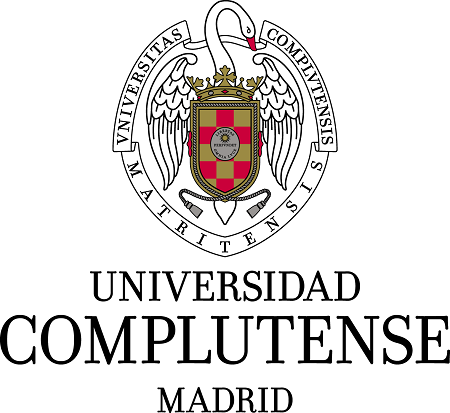

The Complutense University of Madrid (UCM) is an institution with a long history that has wide social recognition and aspires to be among the foremost universities in Europe, and a leading centre for higher education in Latin America. The Academic Ranking of World Universities (ARWU) puts the university at 4th and 9th place, while the QS World University Ranking puts the university at 4th place in Spain.
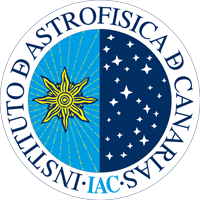

The Institute of Astrophysics of the Canary Islands (IAC) is an international Spanish research centre chosen by the Spanish Government as a "Severo Ochoa Centre of Excellence”


The Vall d'Hebron Research Institute (VHIR) is a leading oncology centre of excellence where scientists and doctors follow a translational research model, working together in multidisciplinary teams to accelerate and advance the field of personalised and targeted cancer treatments.


La Salle is an institution with over 300 years of history and a wide international presence. It is pioneering in the way it offers educational choices that adapt to the needs of the market and society.


The Institute of Energy Technologies (INTE) is a research institute that is part of the Polytechnic University of Catalonia (UPC). The institute mainly focuses on research and technology transfer, structured over four programmes that specialise in ionizing radiation, hydrogen production technologies, and developing materials for energy applications, thermohydraulics, neutron physics, and particle accelerators.


The Barcelona Institute for Global Health (ISGlobal) is the result of an innovative alliance between "la Caixa" and academic and government institutions, to contribute to the international community's efforts to meet health challenges in a globalised world. ISGlobal is a node of excellence based on hospital research (from Hospital Clínic and Parc de Salut MAR) and academic research (University of Barcelona and Pompeu Fabra University), with over 30 years of experience in the field of global health. Its working model aims to transfer knowledge generated by science to the fields of Training and Analysis and Global Development. The ultimate goal of the projects on the ISGlobal agenda is to address the health inequalities that are prevalent across different populations around the world.


The Sant Pau Institute of Biomedical Research (IBBSP), based at the Santa Creu i Sant Pau Hospital, was founded on 4 June, 1992. This private foundation is dedicated to science, and aims to promote clinical, epidemiological and health service research in the field of health sciences and biomedicine, with the ultimate goal of contributing to improving the health of the general population.


The Heart Failure and Cardiac Regeneration Group (ICREC) at the Cardiology Department at Hospital Universitari Germans Trias i Pujol, is part of the Germans Trias i Pujol (IGTP) Health Sciences Research Institute. The group has been active since 2002 in the field of translational research into cardiac function recovery. The group has taken part in pioneering experiments on chimerism and microchimerism in the human heart, and has extensive experience in circulating endothelial stem cells, bone marrow mesenchymal cells, and epicardial and subcutaneous adipose tissue stem cells. The group is also involved in tissue engineering projects with biocompatible polymers to develop bioactive structures that have biomedical applications. It is also searching for new diagnostic and prognostic biomarkers for heart failure.
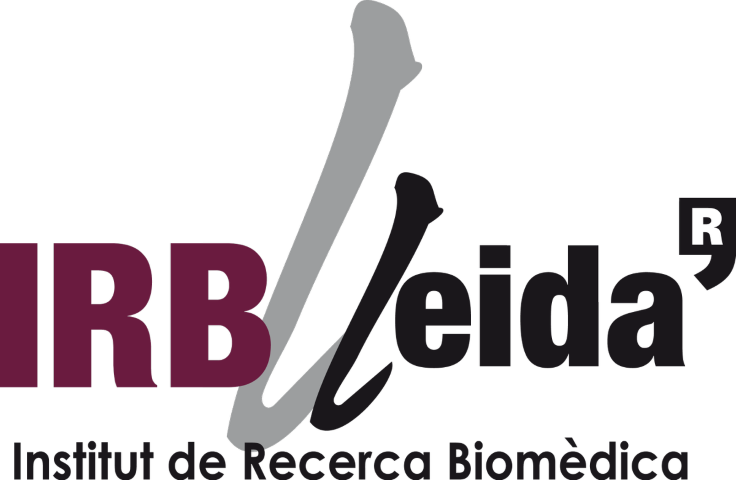

The Lleida Institute for Research in Biomedicine Dr. Pifarré Foundation (IRBLleida) was founded with the goal of creating synergies between basic research, clinical research and epidemiological research, so that biomedical research can be the driving force that improves daily clinical practice for the benefit of the entire population. That is, it covers a translational research chain, from basic research aimed at understanding the physiological and pathological mechanisms of the human body, to research that studies the behaviour of diseases across large population groups.


The Institute of Computational Chemistry and Catalysis (IQCC) of the University of Girona (UdG) is a worldwide reference unit in computational chemistry and catalysis that aims at carrying out groundbreaking research on predictive chemistry for catalysis, with special focus on the processes occurring at the confined space for the coming years. The unit was created as Institute of Computational Chemistry (IQC) in 1993, and its rules were approved in 1997 by the Senate of the UdG. In 2012, the IQC was joined by two experimental research groups, the Bioinorganic and Supramolecular Chemistry (QBIS) and Transition Metals in Organic Synthesis (METSO) groups, and changed its name to IQCC (approved by UdG Senate in February 2013). This was motivated by a previous history of collaborations and synergies between the three research groups. With this transformation, the IQCC wants to face the new challenges in research and adapt to the new research frame at the Catalan, Spanish, and European levels


The Institute belongs to the Natural Resources department of the Spanish National Research Council (CSIC) and is the largest marine research centre in Spain and one of the largest in the Mediterranean. It is dedicated to the study of the seas and oceans. The institute’s research aims to deepen and advance scientific knowledge and discover what role the oceans play in the context of the planet.


The Institute of Environmental Science and Technology (ICTA-UAB) is a multidisciplinary centre that promotes graduate research and training in environmental science. The purpose is to improve understanding of global environmental change, and of the nature and causes of environmental problems. It also studies the policies, strategies and technologies that will foster the transition to a sustainable economy.


The Institute of Evolutionary Biology (IBE) is a joint research centre between Pompeu Fabra University (UPF) and the Spanish National Research Council (CSIC) that was founded in 2008. The IBE's research focuses on the processes and mechanisms that generate biodiversity. The topics it covers include genetic and molecular evolution, population biology, complex systems biology and the retrieval of ancient DNA. The IBE is the only research centre in Catalonia and Spain that focuses entirely on evolutionary biology, and it is a leading centre in the field in Southern Europe. The IBE employs around thirty people, who work in the neighbouring buildings of the Biomedical Research Park (PRBB) and the Mediterranean Centre for Marine and Environmental Research (CMIMA).


The Girona Biomedical Research Institute (IdIBGI) is a research centre in the CERCA network run by the Government of Catalonia that aims to organise and carry out high-quality research in biomedical sciences and public and community health, translating this research into standard practice. The institute ultimately aims to respond to the population’s health problems. The IDIBGI includes other research groups from Hospital Universitari Dr. Josep Trueta in Girona (HJT) and from the University of Girona, the Image Diagnostic Institute (IDI), the Catalan Institute of Oncology (ICO) and the Primary Care Institute (IAP)/Catalan Institute of Health in Girona.
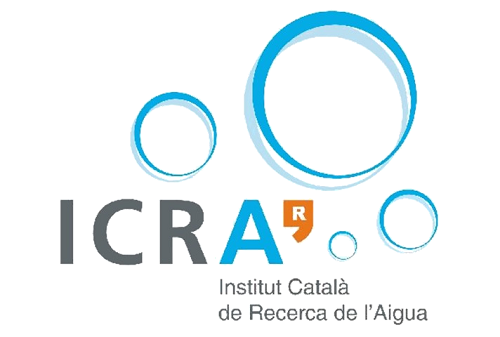

The Catalan Institute for Water Research (ICRA) is a leading international group that focuses on the research into the water cycle in terms of water resources and water quality, in the broadest sense of the word (chemical, microbiological, ecological aspects, etc.) as well as technologies to treat and evaluate water. The organisation's goal is to transfer this knowledge to society, business and industry. The ICRA's research is related to all aspects of water, in particular the aspects related to rational use of water resources and the effects of human activity on water resources. The ICRA is particularly interested in researching and solving issues related to drought, as well as aspects of water treatment and reuse, focussing on the Mediterranean as a priority.


The Catalan Institute of Human Paleoecology and Social Evolution (IPHES) is a transdisciplinary institution that promotes advanced research, education and knowledge transfer, and social engagement with science. Therefore, we cross and combine different fields of science, humanities and social sciences, but also geosciences and biosciences to apply them to the study of human and social evolution. Our aim is to promote knowledge both about ancient human species of the past and about human beings today. The IPHES was created in December 2004 as a non-profit foundation through an initiative of the Catalan Government, Rovira i Virgili University (URV) and the City of Tarragona.


The Forest Science and Technology Centre of Catalonia (CTFC), based in Solsona (Lleida), was initially established by Solsona Municipal Council and the University of Lleida in 1996. Later, the centre counted on collaboration from Lleida Provincial Council, the Catalan Foundation for Research and Innovation, the Government of Catalonia, the Autonomous University of Barcelona, Barcelona Provincial Council and Solsona Town Council. The CTFC is a public consortium attached to the administrative department of the Government of Catalonia, linked through the department responsible for forests. It is also part of the network of research centres in Catalonia (CERCA) and is accredited as a TECNIO agent by the Government of Catalonia (as a public technology developer). The CTFC's mission is to contribute to the modernisation and competitiveness of the forestry sector, to rural development and to the sustainable management of the natural environment. It aims to achieve this through research excellence and the transfer of knowledge and technology to society with the intention of becoming a leading centre on both a national and international level.


The Computer Vision Center (CVC) is a leading nonprofit in the field of research and development in computer vision. It was founded in 1995 by the Government of Catalonia and the Autonomous University of Barcelona (UAB), with the aim of conducting research of excellence, producing high-quality knowledge, and transferring of technology to society while offering added value to companies. The centre is made up of more than 130 researchers and specialists from around the world. Computer vision is a horizontal technology with a range of applications across biomedicine, mobility, security, production, society, media, and more. The centre’s activities focus on cutting-edge research, technology knowledge transfer and training. The strategies that define the centre's mission can be summarised in a model that combines scientific and technological talent to foster the workflow between basic research and transferring knowledge to society.


The Centre for Genomic Regulation (CRG) is an international biomedical research institute of excellence, created in December 2000. It is a non-profit foundation funded by the Catalan Government through the Departments of Business & Knowledge, the Spanish Ministry of Science, Innovation & Universities, the "la Caixa" Banking Foundation, and includes the participation of Pompeu Fabra University. The mission of the CRG is to discover and advance knowledge for the benefit of society, public health and economic prosperity. The CRG believes that the medicine of the future depends on the groundbreaking science of today. This requires an interdisciplinary scientific team focused on understanding the complexity of life from the genome to the cell to a whole organism and its interaction with the environment, offering an integrated view of genetic diseases.
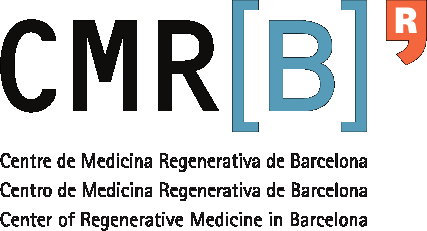

After the assisted reproduction law was passed in November 2003, it became possible to carry out research in Spain using frozen human embryos and stem cells derived from them. The Ministry of Health and Consumer Affairs (now the Ministry of Health, Social Services and Equality) approved the creation of the Centre of Regenerative Medicine in Barcelona in July 2004. The main objective of the CMRB is to research human pluripotent stem cells (embryonic, induced or iPSC), as well as researching different animal models to investigate tissue and organ regeneration and work towards making these advances available in the clinic. Stem cells are also used for disease modelling in the search for efficient drugs.
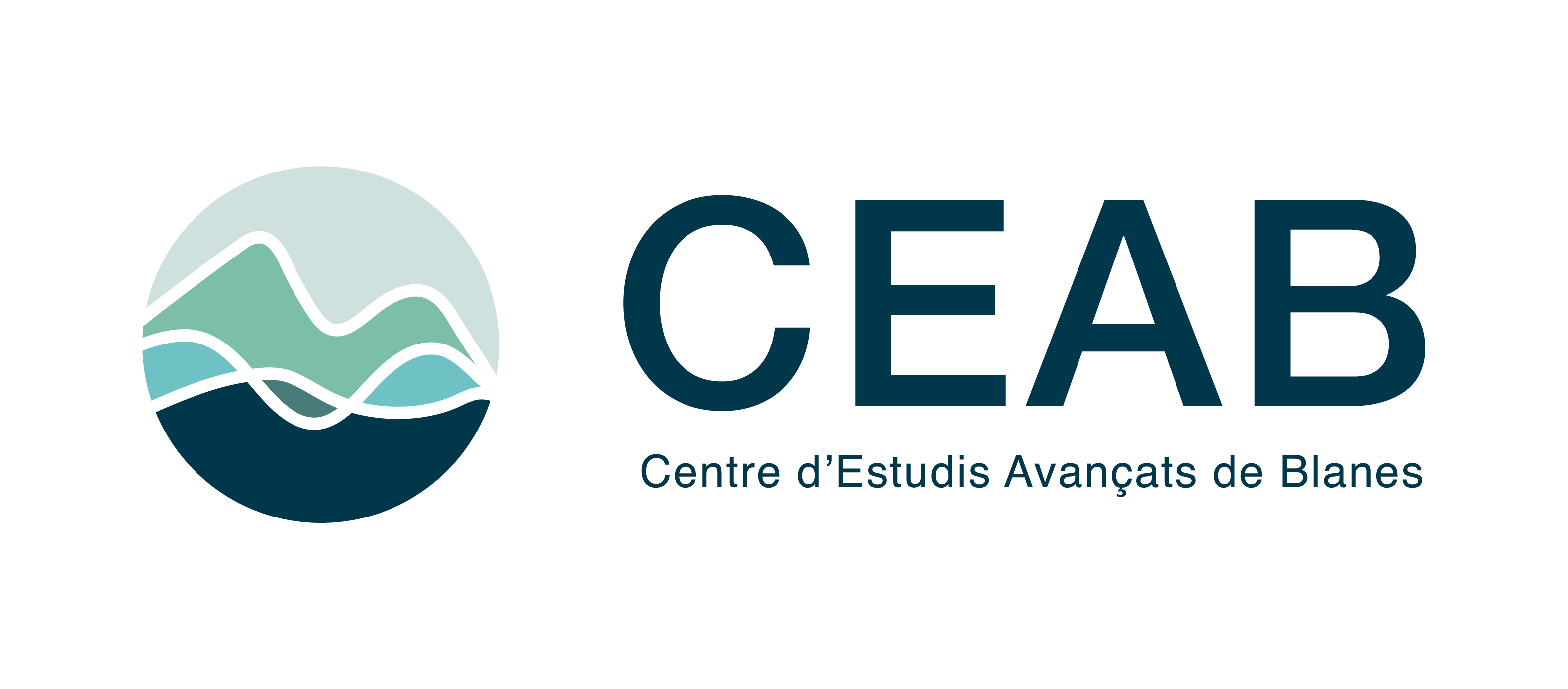

The Blanes Centre for Advanced Studies (CEAB) is a member research centre of the Spanish National Research Council (CSIC). It aims to be a centre with an international reputation that is leading Spanish centre for Marine Biology, Limnology and Ecology. It focuses its research on identifying the diversity of organisms and understanding their functions and interactions in nature, as well as applying this knowledge to the use and rational management of the planet's resources and predicting responses to environmental changes. The centre's research covers aspects ranging from the biochemical and genetic composition of organisms to the structure and dynamic of populations and ecosystems. Its solid, up-to-date and creative research aims to address the challenges that come with developing a sustainable society.


The University of Barcelona (UB) is a leading figure in university research in Spain. In terms of volume of publications, the UB is the second institution in the country after the CSIC, according to the Third European Report on Science and Technology Indicators. According to the Latin American ranking, SIR 2011, it is the university with the highest scientific output in Spain. The UB has 106 departments, 24 research institutes and centres, 243 consolidated research groups and 677 active research projects. The Faculty of Biology at the University of Barcelona was established in 1974, and was a pioneer in Spain. The faculty appeared as a result of the continuous increase in knowledge in the field of life sciences, accompanied by incessant diversification. Currently, within a social context that is expanding and becoming increasingly interconnected thanks to the continued remodelling of higher education, making any predictions is risky. The Faculty of Biology at the University of Barcelona is particularly aware of this, and wants to accept its part in facing up to this challenge. Also, for more than a hundred years now, the Faculty has renewed itself in the euphoria of a widespread intellectual movement, which encompasses lines of study such as environmentalism and new biotechnologies.
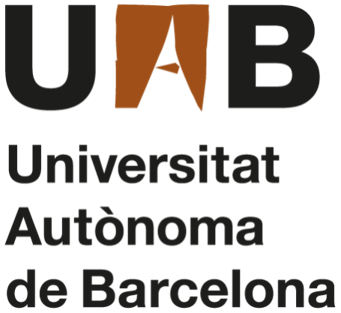

The Autonomous University of Barcelona (UAB) is a public university, rooted in the territory with an international vocation. Through quality teaching closely linked to research activity, it transfers scientific, technological, cultural and educational knowledge to society, promotes the potential of its human capital and manages the available resources responsibly. It is a knowledge ecosystem, in which the institutions linked to the UAB coexist and collaborate, consolidating this university among the leaders in the world rankings.


The ALBA synchrotron light source is a 3rd generation scientific infrastructure located in Cerdanyola del Vallès (Barcelona), the most important facility of its kind in the Mediterranean area. It is a complex of electron accelerators to produce synchrotron light, which the visualisation the atomic structure of matter as well as the study of its properties. It is managed by the Consortium for the Construction, Equipping and Exploitation of the Synchrotron Light Source (CELLS) and is funded in equal parts by the Catalan and Spanish authorities. The electron beam at ALBA generates 3 GeV of energy, which is produced by combining a linear accelerator (LINAC) with a low-emittance, full energy booster placed in the same tunnel as the storage ring. The ALBA Synchrotron has a perimeter of 270 meters and 17 straight sections available for the installation of insertion devices. It has seven operating Phase I light lines, both soft and hard X-rays, which are mainly targeted at biosciences, condensed matter (nanoscience and magnetic and electronic properties), and materials science.


FUNITEC, based at La Salle University Campus, is a private non-profit foundation that aims to provide excellent academic teaching, unique teaching methods and a close relationship with the business world, all from a foundation of high-level teaching staff in teaching and research. A model that combines scientific and technical development with practical knowledge in the areas of Engineering, Management, Architecture and other disciplines.


The Institute of High Energy Physics (IFAE) is a research centre at the Autonomous University of Barcelona (UAB) that carries out leading theoretical and experimental research in fundamental physics, which includes particle physics, astrophysics, and cosmology. It works at the forefront of detection technology, in order to put the knowledge of the scientific community at the service of practical goals. The IFAE is a participant in the LHC's ATLAS project, the T2K neutrino experiment in Japan, the MAGIC telescopes in La Palma, and the Dark Energy Survey in Chile, among others. The IFAE is also working at the forefront of sensing technologies by developing pixels detectors for high-energy physics, telescope cameras, detectors with medical applications and other scientific and industrial applications. The centre has its own researchers, as well as working with professors from the UAB and the Catalan Institute for Research and Advanced Studies (ICREA) and technical staff.


The Institute of Photonic Sciences (ICFO) is a young research institution whose goal is to push the boundaries of knowledge of photonics, science and light technology. Photonics is the field of knowledge dedicated to the generation, transmission, detection, control and manipulation of light, and is one of the key technologies for the 21st century. Light, specifically laser light, is one of the most promising technologies available to humanity today. Its research programmes are framed on world-class frontiers and are aimed at addressing the significant challenges facing society at large. They focus on current and future problems in health, energy, information, security, protection and care of the environment. The role of photonic technologies is very important across a wide range of fields, including agriculture and the environment, manufacturing and manufacturing processes, telecommunications systems and services, medicine and healthcare, life sciences, security and entertainment, among others.
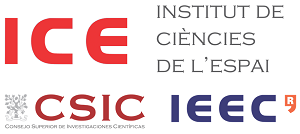

The mission of the Institute of Space Sciences (ICE) is to contribute to the general advancement in cosmic studies, helping to improve the scientific and technological capacity of the Spanish National Research Council (CSIC), as well as strengthen the presence of this institution in space initiatives, promoting excellence in all activities related to scientific research and its dissemination, as well as articulating the contribution to the Institute of Space Studies of Catalonia (IEEC).


The Barcelona Institute of Materials Science (ICMAB-CSIC) is a research centre that is part of the Spanish National Research Council (CSIC). Its main goal is to create new knowledge in materials science and transfer that knowledge to society, particularly to European industry. Researchers at the centre characterise different materials and nanomaterials that are of industrial interest. The ICMAB focuses its activity on cutting-edge research in the fields of materials science, nanoscience and nanotechnology, in order to achieve a multidisciplinary integration of knowledge. With more than 20 years of experience, the ICMAB counts on 220 people with 57 permanent scientists.


The Institute of Bioengineering of Catalonia (IBEC) aims to carry out research of excellence that, which creating knowledge, also contributes to improving quality of life, improving health and wealth creation. The institute has close links with international research centres, universities and companies, in order to exchange talent and develop and execute projects. The IBEC is a research centre dedicated to world-class interdisciplinary research, which through the creation of knowledge contributes to improving health and quality of life and generating wealth. Among the beneficiaries of the work carried out by the Institute of Bioengineering of Catalonia are universities, research centres, the scientific community, the business sector promoting research in the field of bioengineering and society in general.


The August Pi i Sunyer Biomedical Research Institute (IDIBAPS) is the research centre linked to the Hospital Clínic. It is a centre of excellence that addresses high prevalence, morbidity and mortality. More than a thousand professionals work in one hundred research groups. The combination of basic research with clinical practice enables more efficient transfer of scientific advances to patients. With more than 1,100 articles published a year, it is the main biomedical research centre in Spain.
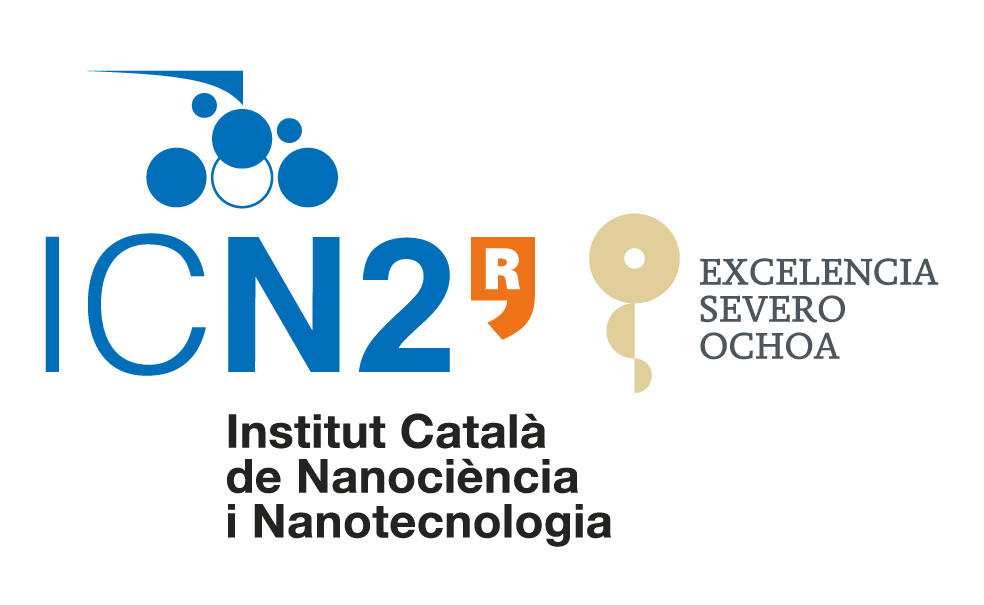

The Catalan Institute of Nanoscience and Nanotechnology (ICN2) is a recognised research centre based at the Autonomous University of Barcelona (UAB). The institute’s research interests lie in discovering the physical and chemical properties that emerge from the fascinating behaviour of matter at the nanoscale. ICN2's mission is to achieve scientific and technological excellence in nanoscience and nanotechnology, and to encourage the adoption and integration of nanotechnology in industry and across society. The ICN2 trustees are the Government of Catalonia, the Spanish National Research Council (CSIC) and the Autonomous University of Barcelona (UAB). The Institute encourages collaboration between scientists from different backgrounds (physics, chemistry, biology and engineering) to carry out basic and applied research, while aiming for collaboration with local and global industry. ICN2 also trains nanotechnology researchers, organises a number of activities to encourage industry to adopt nanotechnology, and promotes joint efforts between scientists, engineers, technicians, business, society and politics.
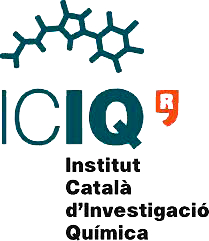

The Catalan Institute of Chemical Research (ICIQ) aims to promote and carry out research of excellence in chemistry. The institute aims to produce, promote and share knowledge, as well as train technical and scientific personnel in chemistry, transfer technology to industry, facilitate contact between basic and applied research and establish collaborations between the ICIQ and companies.


Hospital Universitari de Bellvitge (HUB) opened its doors in 1972 in Hospitalet de Llobregat. Together with Hospital de Viladecans and the Costa de Ponent primary health care centres, the hospital is part of the southern Metropolitan management area of the Catalan Health Institute (ICS). It is one of the 5 hospitals in Catalonia accredited as a third level hospital: offering the highest level of care. It covers all the medical specialities except paediatrics and obstetrics. It is a leading centre for transplants, imaging, heart surgery, digestive and thoracic surgery, neurosurgery, ophthalmology and psychiatry. It is the community referral hospital for 343,172 members of the population of Hospitalet de Llobregat and El Prat de Llobregat. In addition, it is a leading centre for processes involving the latest technology for over 2 million inhabitants of the following districts: South Barcelona Metropolitan Area, Camp de Tarragona and Terres de l'Ebre. For over 25 years, the Hospital Universitari de Bellvitge has been a university teaching centre linked to the University of Barcelona, where it offers courses in medicine, nursing, dentistry and podiatry. The hospital is a leading international research centre and forms part of the Bellvitge Biomedical Research Institute (IDIBELL), one of the only centres accredited with the highest level of research granted by the Carlos III Health Institute at the Ministry of Science and Innovation. The infrastructural resources available are: 31 operating rooms 204 outpatient clinics (including doctors surgeries) 1 clinical laboratory 52 pieces of high-tech equipment, including those managed by the Diagnostic Image Institute (IDI) and the Catalan Institute of Oncology (ICO) 742 beds and 1 international health unit.


The Hospital Clínic de Barcelona is a university public hospital with a centuries-long history. With a workforce of 4,500 professionals, it is one of the leading healthcare centres in Spain and the leader in scientific production. It offers high-quality care, biomedical research of the highest level of competitiveness, and great teaching dedication to training professionals. All of this is part of the excellence of balanced management, with the aim of providing society with cutting-edge humanised medicine.
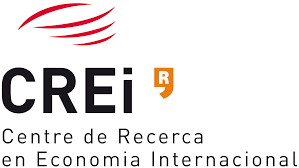

The International Economics Research Centre (CREI) is a research institute sponsored by the Government of Catalonia and the Pompeu Fabra University (UPF). Our research activities are focused on international economics and macroeconomics, which are broadly understood (i.e., including growth, economic cycles, monetary economics, macroeconometrics, international trade and finance, economic geography, etc.). Given its origin, location and spirit, it seeks to emphasise the European dimension of these fields of study. Our goal is to promote research with the highest academic standards. Always in contact with this dimension of research, we also want to be a source of training and dissemination of new ideas. We are lucky to have the UPF Department of Economics and Business very close, and to be an academic unit of the Barcelona Graduate School of Economics (Barcelona GSE) with whom we collaborate in many research and teaching activities. We all share a commitment to CREI's ultimate mission: to contribute to a better understanding of the functioning of economics in contemporary society. This understanding, based on rigorous study, is needed to improve the design of policies and institutions that will increase economic growth and, ultimately, the well-being of citizens around the world.


Alícia, Food and Science, is a culinary research centre. The centre researches culinary products and processes, innovates and works to improve human nutrition, paying particular attention to dietary restrictions and other health problems, promotes an improvement in eating habits, and enhances the dietary and culinary heritage in the local area.
Alícia is a private non-profit foundation that was founded in 2003. The board of trustees is led by the Catalunya La Pedrera Foundation, the Government of Catalonia and prestigious members of society. It counts on collaboration and support from leading scientists and top chefs.
Alícia’s goal is for everyone to eat better, or in other words, to have a healthy, sustainable, tasty diet based on local culture and traditions, adapted to any life situation they find themselves in.


The Barcelona Supercomputing Centre (BSC) is the national supercomputing centre in Spain. As a research centre, we participate in more than 400 research projects and as a scientific facility we serve the scientific community and the international industry. With more than 500 R&D experts and professionals from all over the world, BSC is a centre that attracts talent. Our research focuses on four fields: Computational Sciences, Life Sciences, Earth Sciences and Computer Applications in Science and Engineering. The BSC Consortium is formed by the Ministry of Economy, Industry and Competitiveness of the Government of Spain (60%), the Department of Business and Knowledge of the Government of Catalonia (30%) and the Polytechnic University of Catalonia (10%).